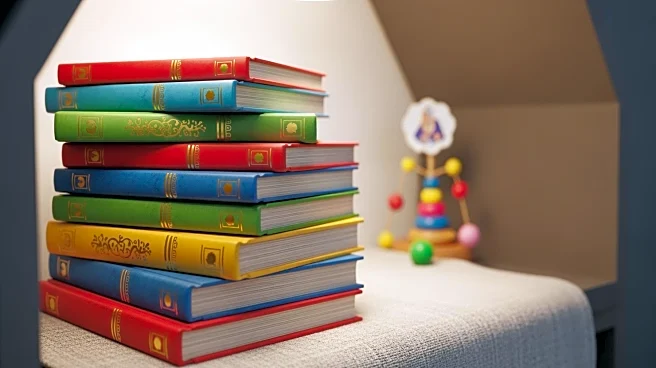What's Happening?
The Booker Prize Foundation has announced the launch of the Children's Booker Prize, a new literary award aimed at celebrating contemporary fiction for children aged eight to twelve. The prize will be
open to global authors for books written in English or translated into English, provided they are published in the UK or Ireland between November 2025 and October 2026. The initiative comes at a time when children's reading for pleasure is reportedly at its lowest in 20 years, according to the National Literary Trust. The foundation aims to inspire more young people to read and plans to gift at least 30,000 copies of shortlisted and winning books to children. The inaugural chair of judges for 2027 will be UK Children's Laureate Frank Cottrell-Boyce.
Why It's Important?
The launch of the Children's Booker Prize is a significant step in addressing the decline in children's reading habits. By promoting high-quality literature for young readers, the prize aims to foster a love for reading and improve literacy rates among children. This initiative could have long-term benefits for educational outcomes and cultural engagement, as reading is a fundamental skill that supports academic success and personal development. The prize also highlights the importance of diverse and inclusive storytelling, potentially encouraging publishers to invest more in children's literature.
What's Next?
Submissions for the Children's Booker Prize will open in spring 2026, with the shortlist and child judges announced in November 2026. The winner will be revealed at an event for young readers in February 2027. The prize is expected to generate significant interest from authors and publishers worldwide, potentially leading to increased investment in children's literature. The National Year of Reading 2026, announced by the National Literary Trust, will coincide with the prize, further promoting reading among young people.
Beyond the Headlines
The Children's Booker Prize could influence the publishing industry by encouraging the production of more diverse and innovative children's books. It may also spark discussions about the role of literature in education and the importance of nurturing young readers. The involvement of child judges in the selection process highlights the value of children's perspectives in literary evaluation, potentially leading to more relatable and engaging content for young audiences.









